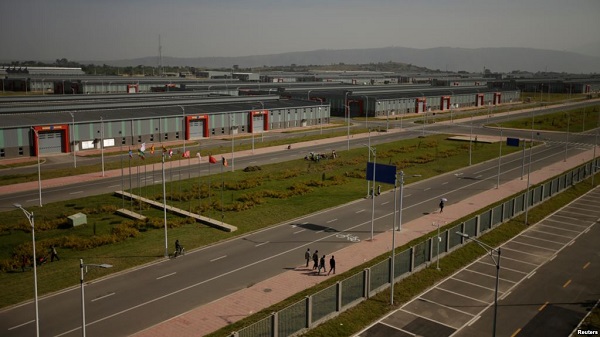
About 80-100 investors are expected to engage in each of the four integrated agro-processing industrial parks. Of these, 80 percent will be local and the rest foreigners, it was learned.
ADDIS ABABA (ENA)–Construction of four pilot integrated agro-processing industrial parks (IAIPs) that cost 10 billion USD, excluding electric power supply cost, is expected to be completed at the end of this Ethiopian fiscal year (June 2019), according to Ministry of Trade and Industry.
The delay of the projects by six months was due to redesigning of the parks, Ayalneh Abawa, Advisor for Integrated Agro-processing Parks in the ministry said.
“The study for the parks took two years and the construction was expected to be completed at the end of December 2018.”
“Electric power is the challenge at present as budget was not allocated. Shortage of foreign currency inhibited the construction of substations,” Ato Ayalneh added.
◌ ALSO: The role of integrated agro-processing industrial parks in Ethiopia’s agriculture and economy
Each of the parks consumes 40-50 MW, it was learned.
“Electric power is a challenge as each of the parks consumes 40-50 MW; but shortage of foreign currency has inhibited the construction of electric infrastructure,” Ato Ayalneh stated.
The pilot agro-processing industrial parks under construction since 2016/17 are Baeker for sesame, sorghum and livestock; Bulbula for cereal and milk; Bure for cereals, pulses and spices, and Yirgalem for coffee, fruit and vegetables.
About 80-100 investors are expected to engage in each park. Of these 80 percent will be local and the rest foreigners, he said.
◌ ALSO READ: Ethiopia to inaugurate Debre Berhan Industrial Park
After the completion of the 4 IAIPs in June 2019, the remaining identified agro-industry corridors nationwide will be commissioned after 10 years, it was revealed.
The purpose of IAIPs is to attract the private sector to set up food processing plants in bumper producing areas by adding value to agricultural products,linking farmers to processing plants and creating wealth for them as well as reducing post-harvest loss and accelerating rural economic growth in Ethiopia.
Source: ENA
